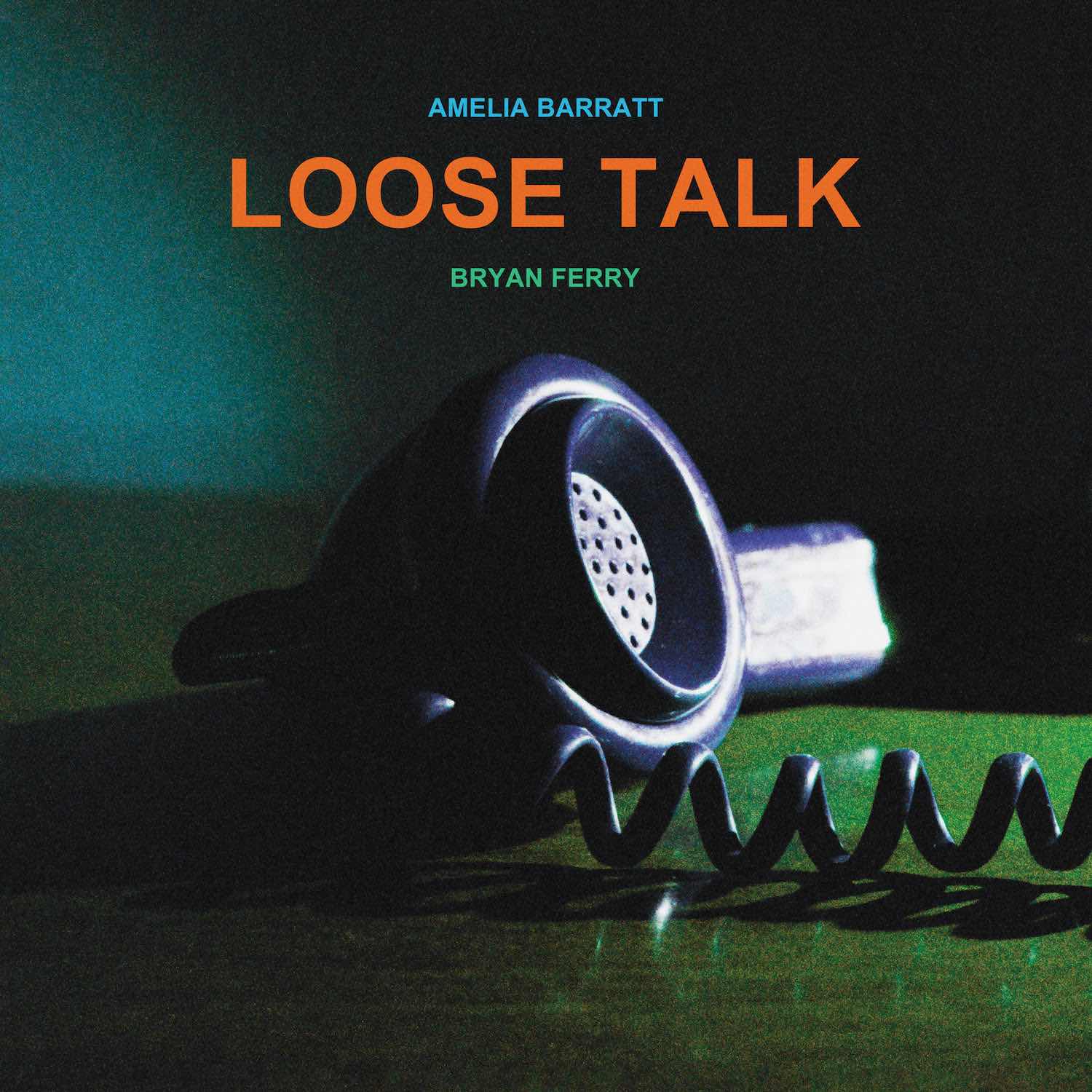Bryan Ferry & Amelia Barratt
Loose Talk
DENE JESMOND
Over the past decade or so, Bryan Ferry has ambitiously tapped into his back catalog of solo compositions and Roxy Music tracks as things to be dissected and played with on albums such as 2012’s The Jazz Age and 2018’s Bitter-Sweet. That’s better than just collecting them like stamps and putting them into retrospective albums of past victories (OK, he’s done that as well, but at least there’s “Love Is the Drug” done up ’20s flapper jazz style, too). With that in mind, here is the ghostly sounding Loose Talk and its above-the-title collaboration with spoken-word performance artist Amelia Barratt, which is pretty good considering that the solo Ferry has worked closely with Nile Rodgers, David Gilmour, and their ilk with little but the fine print to show for it.
Bringing to mind Ferry’s youthful studies in fine art under the great British collage maker Richard Hamilton, and using his own “Re-Make/Re-Model” song title as its goal post, this new album finds Roxy’s main man cutting, pasting, and digging his own crates for hissy old demos and haunted, warped melodies that went unused until now. Pushed, pulled, and with new instrumentation added, these ancient tracks filled with rickety rhythms and dissonant synthesizer (“Stand Near Me”), swooping electric pianos (“Big Things”), or gauzy layers of what might be clicking triggered Mellotron (quite a bit, here, actually), the shockingly lo-fi—for Ferry, anyway—Loose Talk is akin to a film student’s end-of-term thesis statement, something rich with smokey, scaley atmosphere, silhouetted characters, and purposely sketchy details.
On the pensively coursing “Orchestra,” the piano still-life “Landscape,” and the crusted-over “Cowboy Hat,” you can hear Ferry croon-moaning, wordlessly, on a distant shore across the sloe-gin-fizzy waters of melody. Have you ever pretended to yell while jokingly whispering instead with no actual identifiable words coming out? That’s Ferry on Loose Talk, sending a message that’s intentionally blurred and consciously unconscious. It’s as baffling as it is commendable—after all, who, at this late stage of the game (save for Bowie on the avant atonal-death jazz of Blackstar) fucks so much with formula that it wipes each slate clean?
As a compliment to her side of the ledger, slow-talking Barratt paints asymmetrical thought-bubble poems across Ferry’s halting music, sparsely placed phrases and tentative monologues that loosely refer to that which Ferry has soundtracked—say, with the battered electronica of “Orchestra” and its talk of conducting. To his credit, Ferry gives Barratt Roxy-level props in the record’s press notes by referring to her conversational set pieces throughout Loose Talk as reminiscent of what he did with eerie word-jazz classics such as “In Every Dream Home a Heartache” and “Mother of Pearl. Now, everything new is old again and vice versa.







